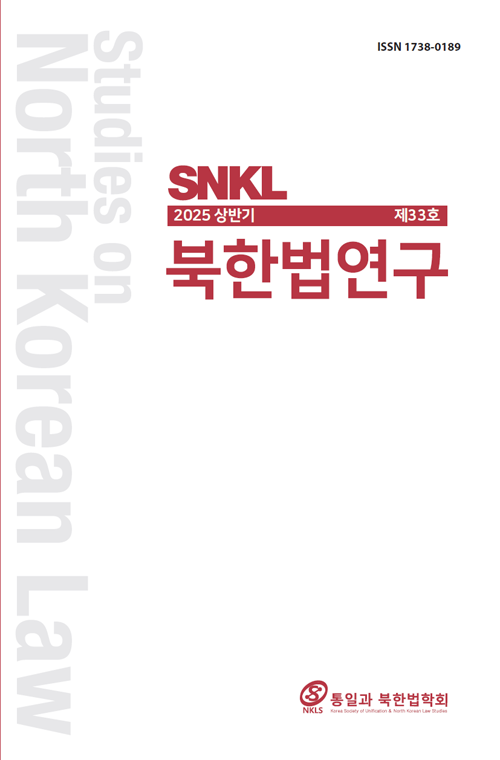최근 시민단체는 역할과 기능에 있어 중대한 도전에 직면해 있다. 이벤트성 이슈의 고갈, 국가와 사회의 민주화 및 합리화에 따른 시민단체 역할의 축소, 만성적인 재정결핍과 정부보조금에 대한 의존성, 전문성 부족 등에 따라 시민단체 활동의 지속성에 대한 의문이 제기되고 있다. 특히 통일 관련 시민단체의 경우, 국가 어젠다에서 소외되는 경향마저 있다. 남북 관계의 경색으로 역할과 기능이 축소되었을 뿐만 아니라 그 동안 주력하고 있던 인도적 대북경제지원도 활력을 잃어버린 상황이다. 대북제재와 코로나19 사태가 주요한 원인이다. 더 큰 문제는 앞으로 북한의 경제난이 해결되거나, 본격적으로 남과 북이 통일의 과정에 들어서 그 동안 제대로 다루지 못했던 통합관련 문제가 전면에 제기될 경우 통일 관련시민단체가 방향성을 잃고 사라지는 것이 아닐까 하는 우려마저 제기되고 있다. 이런 측면에서 통일 관련 시민단체의 기존의 활동방식과 내용에 대한 근본적인 재검토가필요하다. 즉, 통일과 관련하여 미래지향적 역할과 기능을 찾아야 할 단계에 이른 것이다. 본 논문은 이러한 문제의식에서 그 동안 가려졌던 시민단체의 정책형성기능에 주목한다. 비판과 감시, 여론형성, 인권운동의 주체라는 기존 시민단체의 기능과 역할에서국가질서를 형성하는 자율적 정책형성자로서의 기능이 시민단체의 대안적 활동으로 중요해지고 있는 것이다. 그리고 이러한 기능이 앞으로는 통일국가질서를 형성하는 데큰 역할과 기능을 할 것이라고 판단된다. 이를 위해서 먼저 시민단체의 개념, 시민단체에 대한 규범적 근거와 지위를 살펴본다. 이 과정에서 시민단체가 자율적으로 국가질서를 형성할 수 있는 정책설정기능과지위를 갖고 있다는 점을 확인하고, 서로 무관해 보이는 서로 다양한 시민단체들이 통일국가의 질서를 형성하는 데 유기적 영향을 미칠 수 있다는 점을 논증한다. 또한, 시민단체의 활동의 문제점을 기능과 활동내용, 활동구조, 규제중심의 법제도라는 측면에서 분석하고, 통일에서 시민단체의 역할과 기능 강화를 위해서는 무엇이 필요한지를 살펴봄으로써 통일에서 시민단체의 바람직한 역할에 대해 고찰해 보고자 한다.
Recently, civic groups have been facing significant challenges in terms of their roles and functions. Issues related to the depletion of event-driven issues, the reduction of the role of civic groups due to the democratization and rationalization of the state and society, chronic financial shortages and dependence on government subsidies, and lack of expertise have raised questions about the sustainability of civic groups activities. In particular, civic groups related to unification are increasingly being marginalized from the national agenda. Not only have their roles and functions been reduced due to the strained relations between the North and South, but the humanitarian economic support for the North that they had been focusing on has also lost its momentum. The main causes are the sanctions against North Korea and the COVID-19 pandemic. A bigger problem is the concern that if North Korea's economic difficulties are resolved in the future, or if the South and North enter into a process of unification and issues related to integration that have not been properly addressed come to the forefront, unification-related civic groups may lose their direction and disappear. From this perspective, a fundamental reexamination of the existing activities and content of unification-related civic groups is necessary. In other words, we have reached a stage where we must seek future-oriented roles and functions related to unification. This paper focuses on the policy-forming function of civic groups, which has been overlooked until now. While civic groups have traditionally functioned as critics, monitors, opinion formers, and human rights activists, their role as autonomous policy-formers in shaping national order is becoming increasingly important as an alternative activity. It is judged that this function will play a significant role in shaping the national order of a unified Korea in the future. To this end, this paper first examines the concept of civic groups, as well as the normative basis and status of civic groups. In this process, it confirms that civic groups have the policy-setting functions and status to autonomously form national order, and argues that diverse civic groups, which may seem unrelated, can have an organic influence on the formation of a unified national order. Additionally, we will analyze the issues surrounding the activities of civic groups from the perspectives of their functions, content, structure, and regulatory-focused legal systems. By examining what is necessary for the transformation of the role and functions of civic groups in unification, we aim to explore the desirable role of civic groups in the unification process.
Ⅰ. 서론
Ⅱ. 시민단체의 개념 및 규범적 근거와 그 지위
Ⅲ. 통일 관련 시민단체의 활동과 문제점
Ⅳ. 통일 관련 시민단체의 역할과 기능 전환을
위한 제언
Ⅴ. 결론
참고문헌
(0)
(0)
